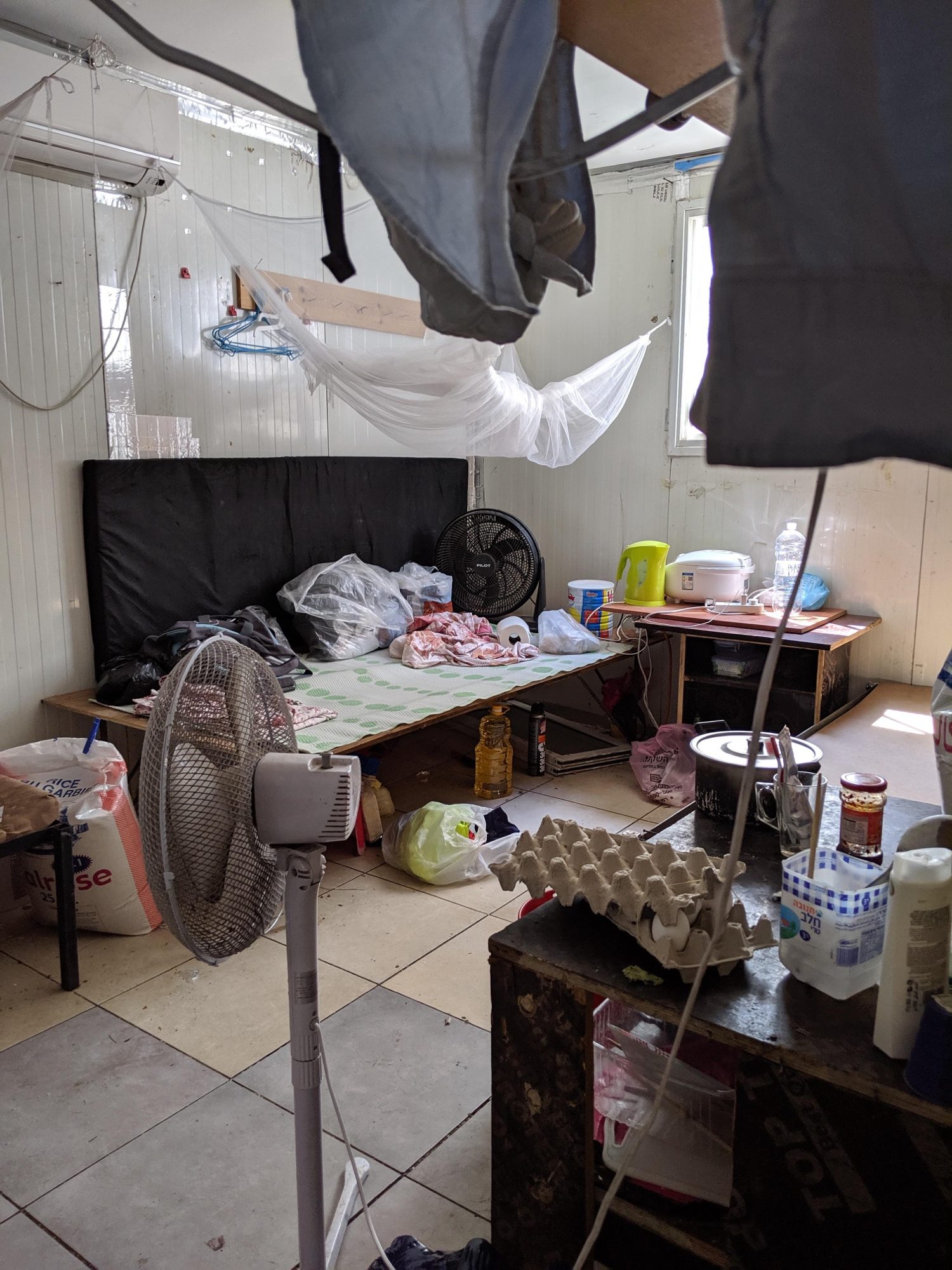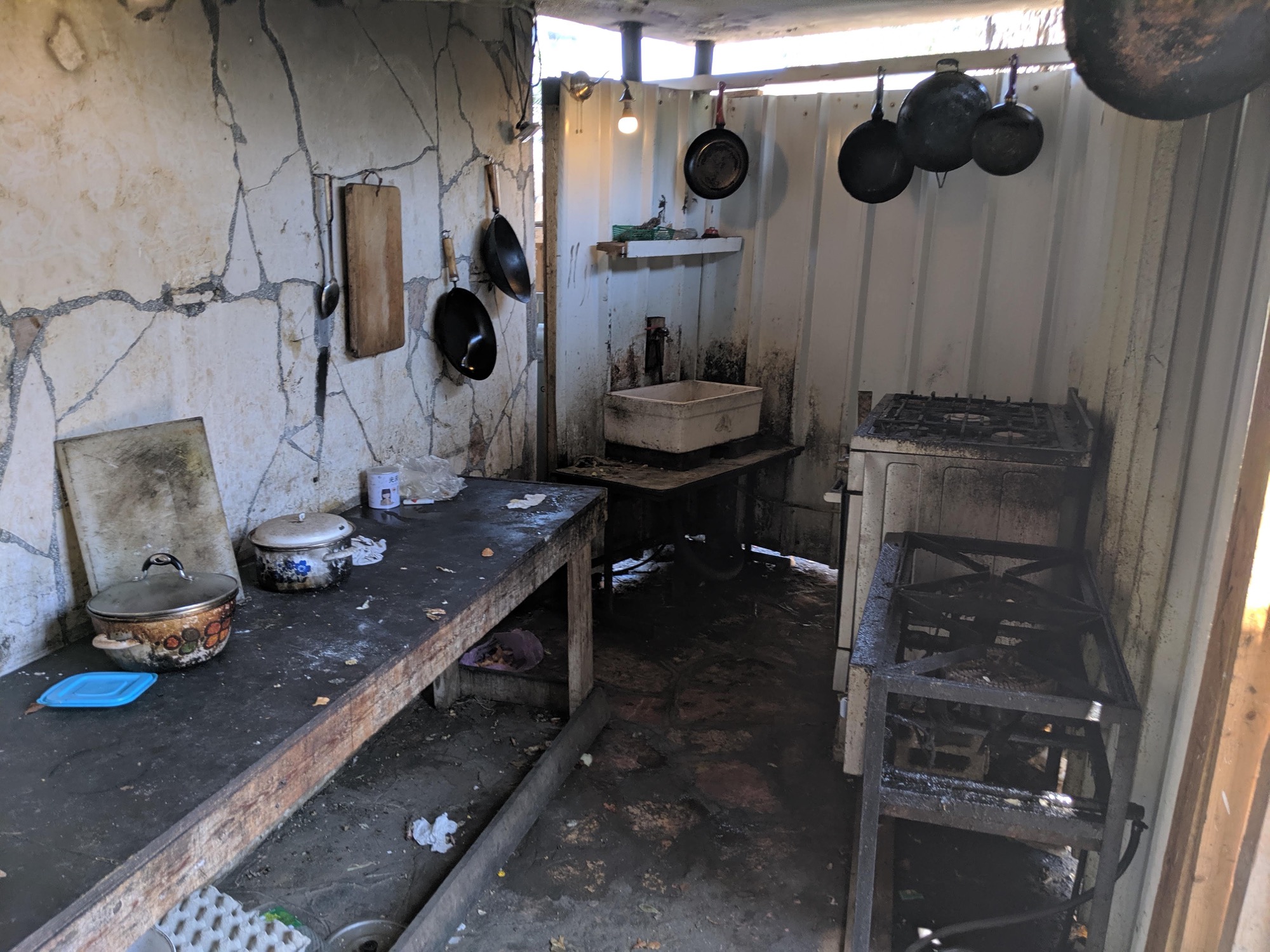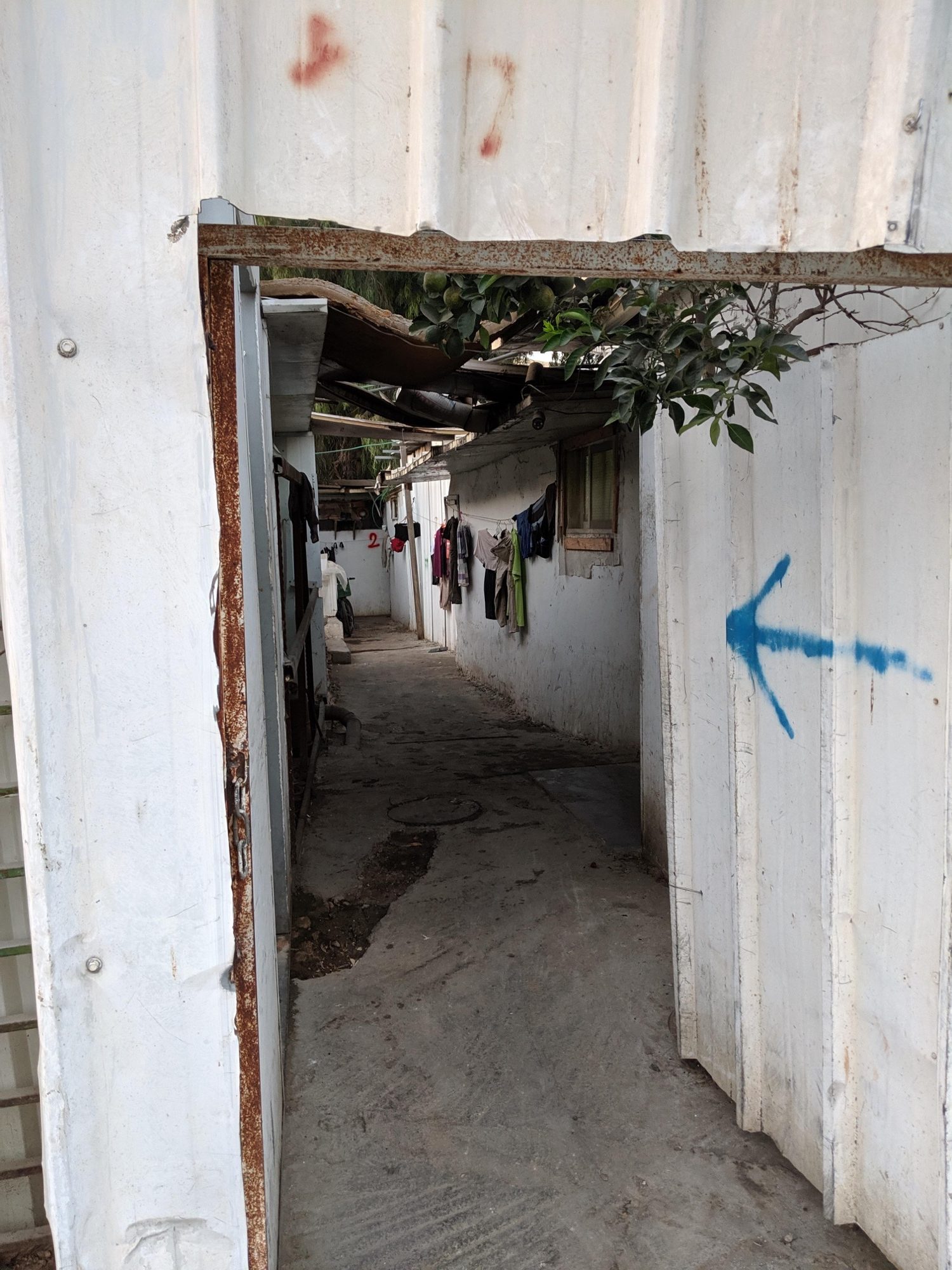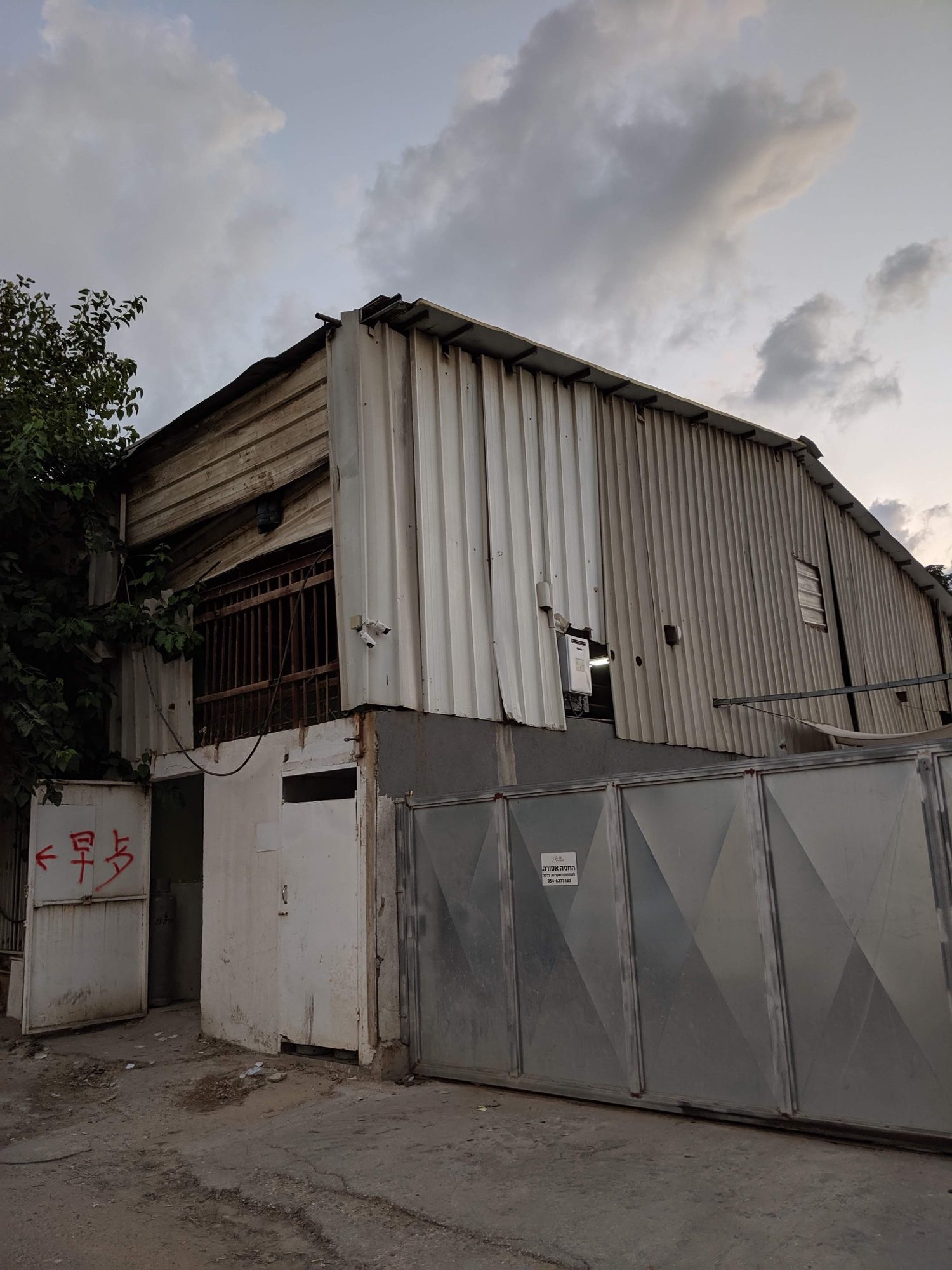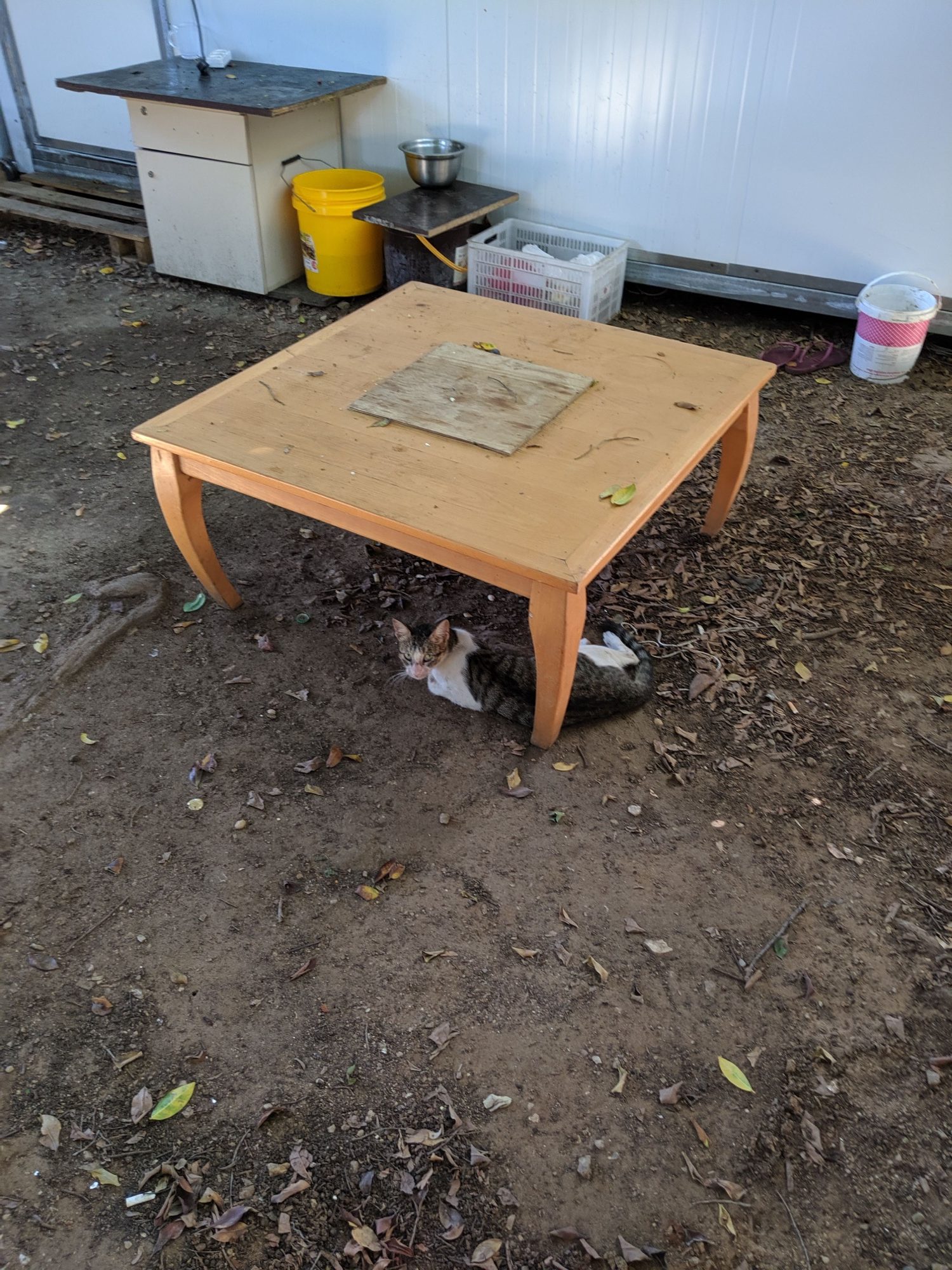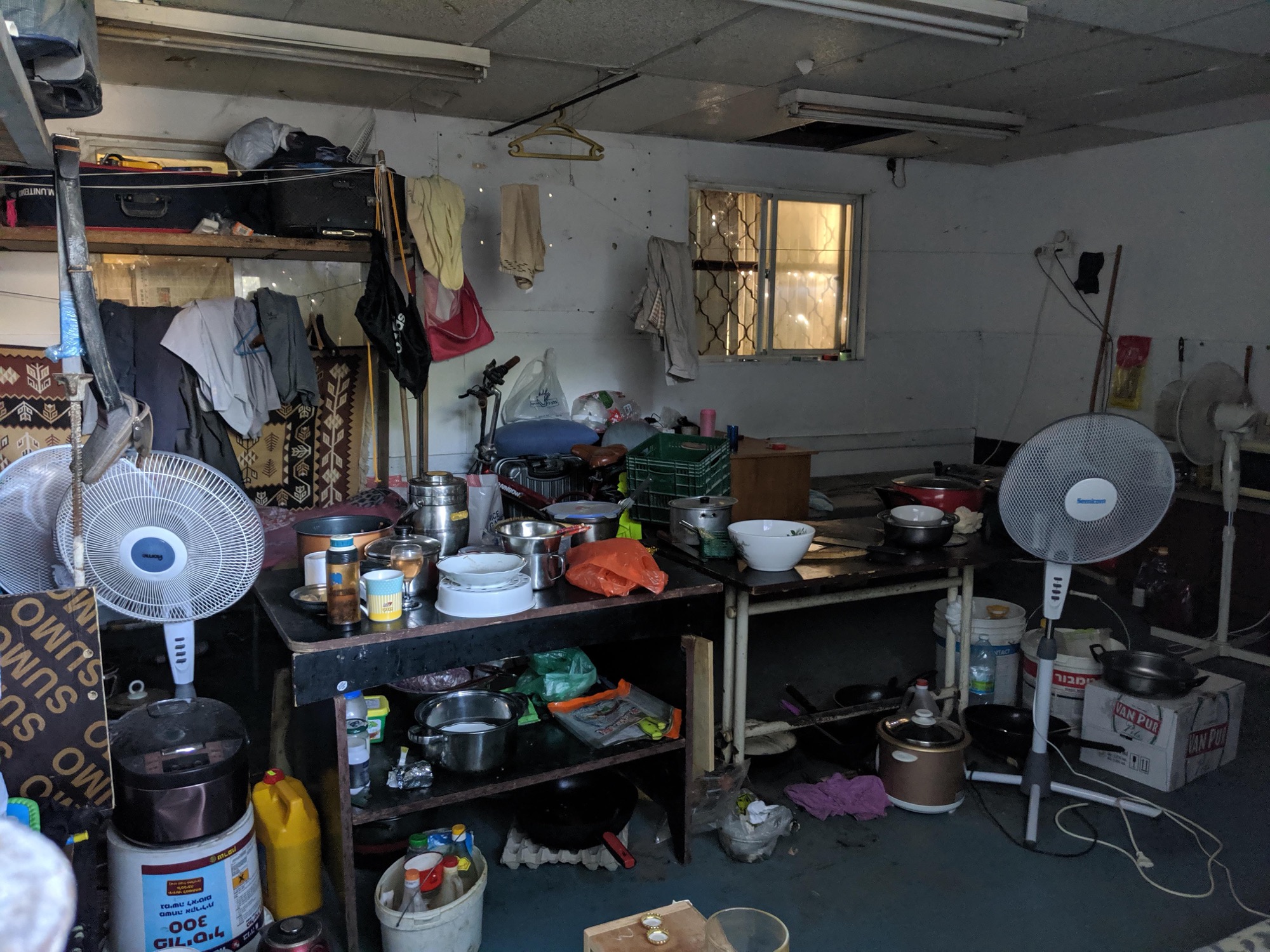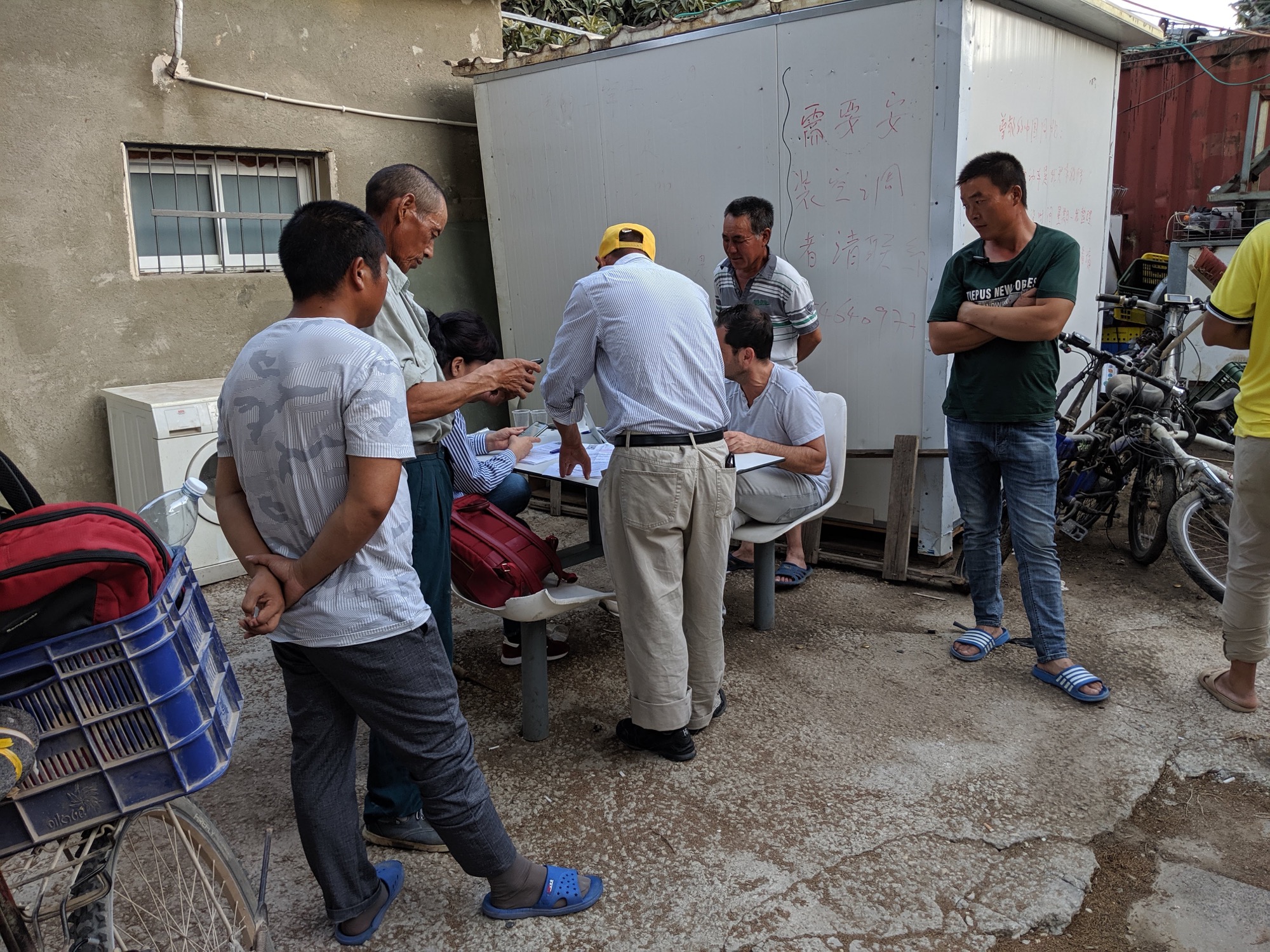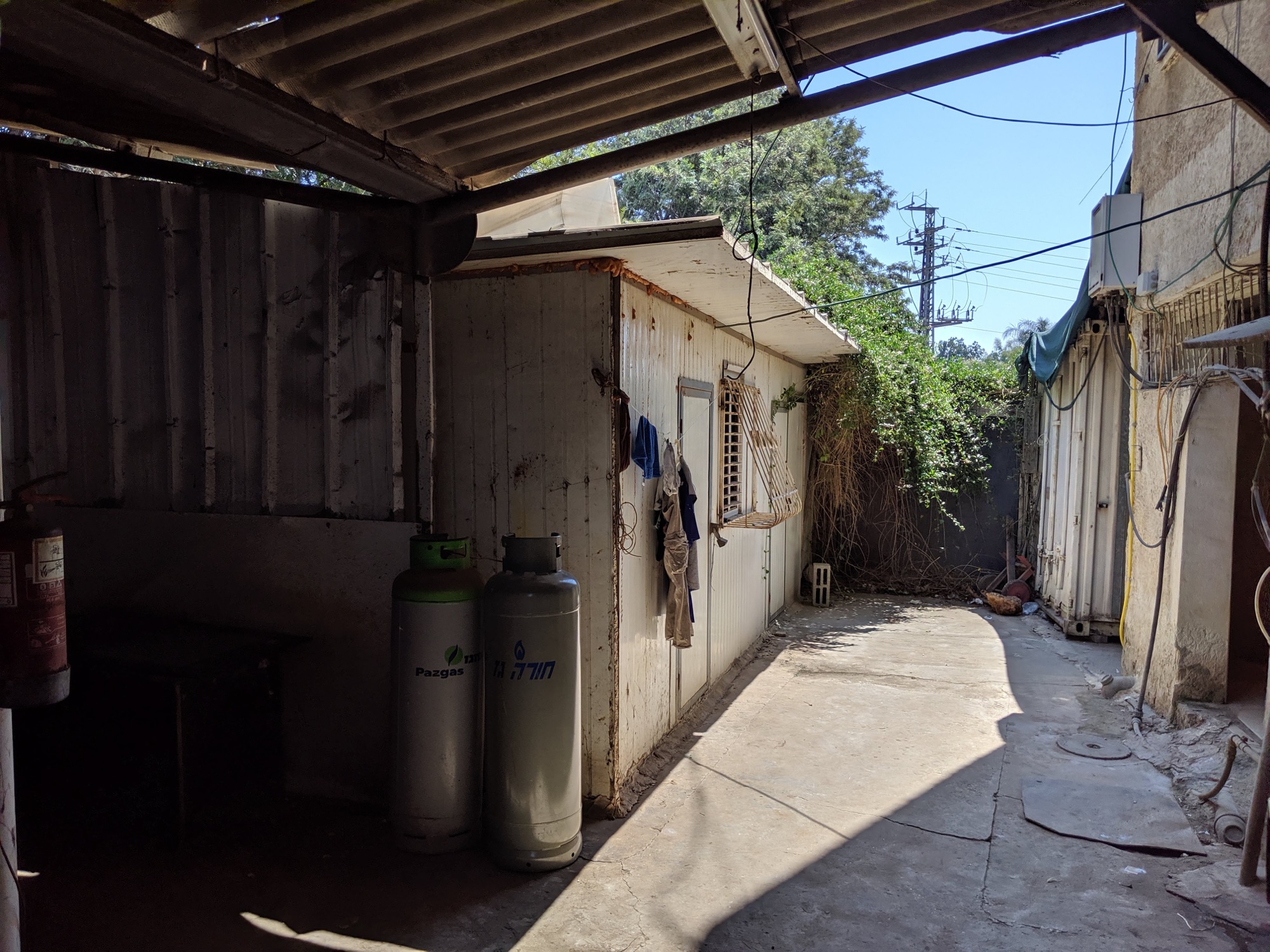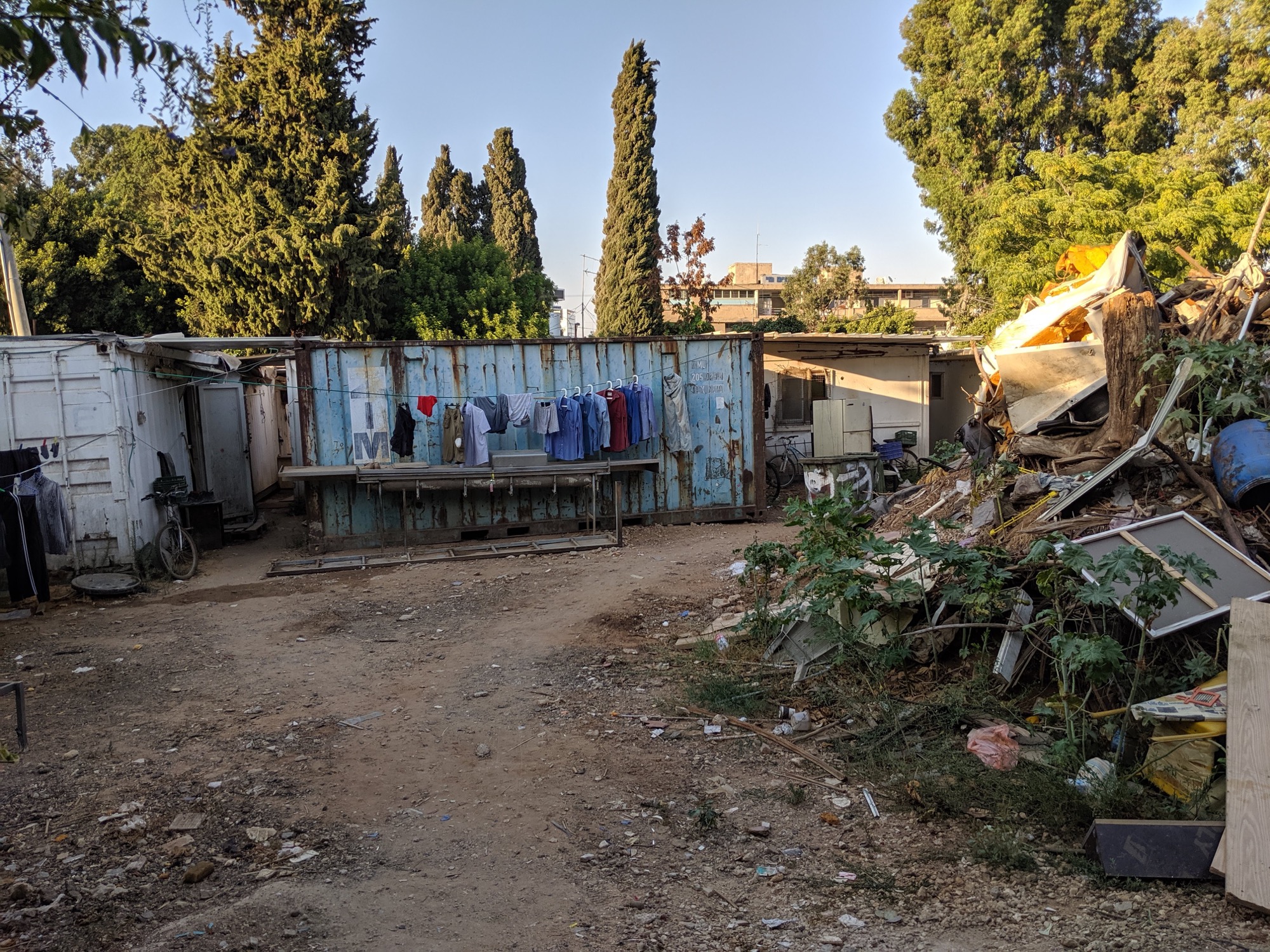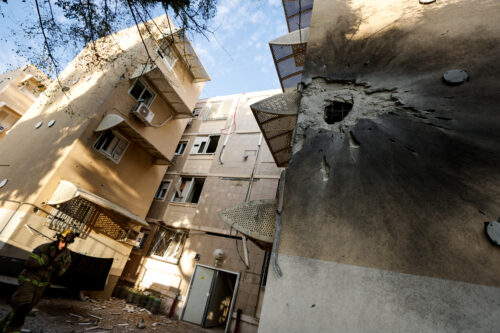The Chinese migrant workers who power Israeli construction
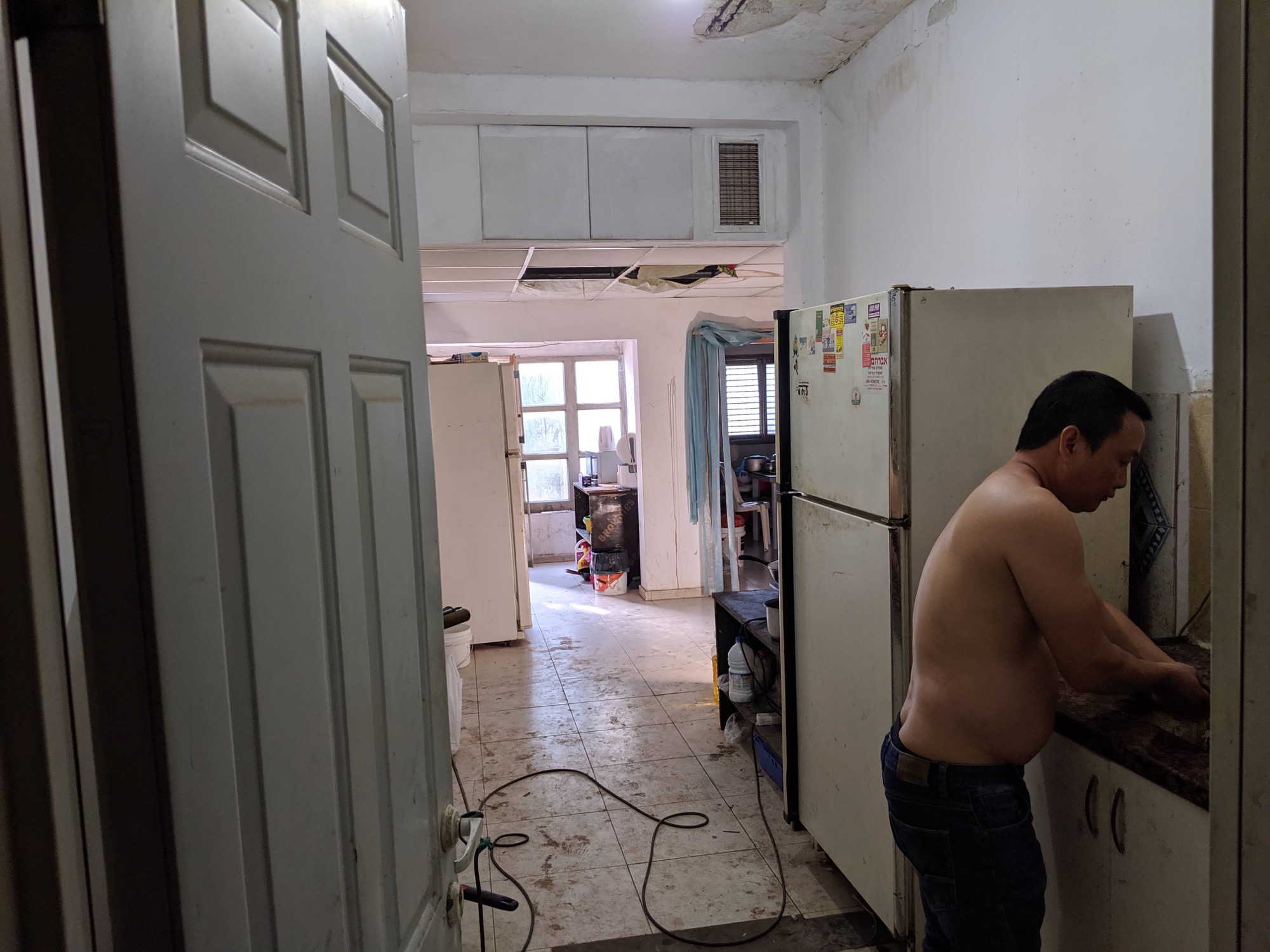
All photos by Itamar Waksman
The Israeli construction sector is known as one of the most dangerous in the world. It relies heavily on labor from Chinese migrant workers, who risk health and happiness in an effort for a better life.

In an industrial corner of Petah Tikva, a suburb of Tel Aviv, tucked among auto repair shops and construction materials warehouses, lies a large compound of dormitories. Spray-painted on the side of the walls are arrows indicating where the residents, mostly Chinese, are to be picked up — around six o’clock in the morning, Sunday through Friday — and transported to their respective work sites across the country. Around seven in the evening, the site comes alive again with waves of returning workers, their clothes dirtied and skins darkened from toil in the harsh Middle East sun.
Chinese migrant workers have driven China’s unprecedented economic miracle and subsequent rise as a world power, and represent one of the foundations of China’s rapid industrialization. But while 250 million Chinese have migrated into urban areas domestically, hundreds of thousands more have gone abroad, seeking new opportunities even farther from home. According to China’s Ministry of Commerce, 992,000 Chinese workers were working overseas as of the end of last year.
Chinese workers began going to Israel in the 1990s in the wake of the First Palestinian uprising, or Intifada, fulfilling a severe labor shortage in Israel’s construction industry. Today, Chinese workers represent the largest proportion of foreign workers in construction in the country, numbering around 6,000. They work in various projects, mostly employed by Israeli firms.
Chinese workers from the 1990s until 2017 were hired under a restrictive employment mechanism in which they were directly tied to their employers. Potential workers paid exorbitant fees for the opportunity to work in Israel, averaging around $22,000, according to a 2011 survey by the Center for International Migration and Integration (CIMI).
Most Chinese workers would arrive in Israel with high levels of debt, giving construction companies massive leverage over them, as they could not choose to change employers once in the country. This caused poor working conditions while also encouraging Chinese workers to enter illegal employment, as disgruntled workers would leave their contracting company but remain in Israel.
In November 2017, the Israeli and Chinese governments signed a bilateral agreement (BLA) to regulate the process of bringing construction workers to Israel. According to the BLA, only the Israeli Population, Immigration, and Border Authority (PIBA) and the Chinese International Contractors Association were allowed to provide permits to work in Israel, cutting out the recruitment agencies and regulating recruitment fees. Additionally, workers would be able to change employers within their sector while within the country.
Professor Nonna Kushnirovich, a researcher that studies migration in Israel, says that the purpose of the BLA was to increase transparency and lower recruitment costs for potential migrant workers, with little attention paid to living and working conditions. In this sense, the agreement has been successful: a survey conducted by CIMI in conjunction with PIBA and the Ruppin Center found that between 2011 and 2018, the average recruitment costs of a Chinese worker declined from $22,000 to around $1,500.
But in other ways, the BLA hasn’t done enough for workers’ rights.
The Israeli construction sector is known as one of the most dangerous in the world. In 2018, it had the third most construction accidents among members in the OECD. A 2016 report from the Israeli Economy and Industry Ministry and National Insurance Institute estimated that fatal accidents at Israeli building sites occurred at over twice the rate as in the European Union. According to Kav LaOved, a nonprofit that deals with workers’ rights, 47 construction workers died on the job in 2019. Because Chinese workers are almost exclusively employed in the construction sector, they disproportionately face this reality.
Nily Gorin, an activist who has worked extensively with the Chinese community, says that workers always faced “precarious working conditions” and poor living standards. She believes that it was possibly a mistake, both by the government and the activist community, to focus reform efforts exclusively on reducing recruitment fees, failing to recognize “workers as social beings.”
“Chinese people work [in Israel] for two reasons: family and country.”
Li Baoshan, a Chinese construction worker who has lived in Israel for more than 10 years, says that regardless of the reduction in migration costs, “The life of Chinese workers [in Israel] is very bitter.” While acknowledging that wages are higher in Israel, he believes that working and living conditions are worse than in any other country where Chinese construction workers are employed, including China itself.
Li says that safety at worksites is one of the “more difficult” aspects of life in Israel. He tells a narrative of workers putting their bodies on the line to fuel the construction necessary to accommodate Israel’s rising population. Construction sites lack nets to catch falling workers, a safety provision that has been adopted throughout the majority of the world, including China. Managers are unresponsive to workers’ complaints. Laborers work long hours, an average of over 11 per day, according to CIMI surveys, resulting in exhaustion.
A Chinese worker surnamed Bai, speaking in front of a Chinese church in the Neve Sha’anan neighborhood, recounts encountering a dispute between an Arab and Chinese laborer at his worksite. The confrontation became physical, but the managers seemed apathetic. Unable to communicate clearly, other workers had to separate the two sides. Bai says that situations like these imperil the safety of the worksite, where workers must rely on each other. He says he was shocked at the manager’s indifference, and as a relatively recent migrant to Israel, began doubting his stay in the country. When Chinese workers like himself require translation services for disputes with other workers or management, they must call a number provided by their companies. This number is often busy or there is no answer. With little assistance from management and feeling alienated, Bai laments that he may not complete his full five-year contract if his working and living conditions don’t improve.
Bai isn’t alone in his dissatisfaction. Two CIMI studies have found that the proportion of Chinese workers who would recommend others to come to Israel has declined from 60% to 38%. According to Michal Tajer, a lawyer at Kav LaOved, the quotas established by the BLA have so far gone massively under-filled, possibly signaling reservations on the Chinese side.
Israel’s abhorrent safety standards have even reached the attention of Chinese officials. In 2018, after two Chinese workers died on the job in Israel, Chinese authorities barred their nationals from working in 36 projects, assigned four inspectors to thoroughly assess safety at sites employing Chinese workers, and called in the deputy ambassador of Israel in Beijing to explain the incidents.
Beyond poor working conditions, Chinese workers face inhumane living conditions. According to Professor Kushnirovich, the Foreign Workers Law of Israel stipulates that employers must provide only minimal living standards to their workers, including beds, four square meters of living space per person, cooking facilities, and restrooms. But due to its lack of details and weak enforcement, living conditions are very “bitter” for Chinese workers, according to one worker living in the dorm site.
Entering the Chinese workers’ dormitories reveals conditions that most would find unacceptable. According to multiple residents, around 200 workers live in the vicinity. The dormitories are mostly repurposed shipping containers, with doors installed on the sides and no insulation, making them unbearably hot in the summers and cold in the winters.
“Look around. Do you see any democracy or human rights here?”
The dorms are small and cramped, stuffed to the brim with the beds, luggage, and living necessities of two workers. There is no pavement connecting the dormitories, only mud paths with the occasional wood pallet placed on top. Legions of rats and stray cats scuttle around the dorm. Showers and restroom facilities are shared among large amounts of people, resulting in, as a worker surnamed Liu, who lives in the dorm, puts sarcastically, “parties every morning, parties every evening.”
Liu finds the living conditions at his dorm atrocious. Having previously worked in Japan, he is shocked at the difference in living standards. In Japan he had a shared apartment with a washing machine, full kitchen, and proper restrooms. In Israel, he has none of these. He says the power often goes out, and that many times there is no hot water. Kitchens are nothing more than one table to prepare food and a few large burners for wok cooking. When problems do arise, the person charged with managing the dormitories on behalf of employers is oftentimes unresponsive. He says that in his dorm, where more than 30 workers live, there are only three showers and three toilets. He says he came to Israel because of an online advertisement he saw promising good pay and good living conditions. Feeling deceived, he doubts he will complete his five-year contract unless conditions improve.
Li Baoshan laughs at the idea that Israel is a country of democracy and human rights. “Look around,” he exclaims. “Do you see any democracy or human rights here?” He maintains that the Israeli government, and society overall, simply doesn’t care about him and his fellow Chinese migrant workers. He says Chinese workers come to Israel to “contribute” to Israel by “building for Israelis.” In return, they oftentimes don’t receive their full paychecks, have to withstand minimal safety standards, and live in conditions reminiscent of the housing areas in Upton Sinclair’s The Jungle.
Nily Gorin, the activist, believes that substandard conditions persist because there are “no conditions supporting grassroots activism” in the Chinese community. She says that other migrant groups, like the children of migrants born in Israel who face persecution and deportation, have been able to better organize themselves because of their relative integration into Israeli society, using that organization to spearhead the broader movement for their rights.
In contrast, Li outlines how the combination of long working hours, a massive language barrier aggravated by a lack of resources provided by the government and employers, and political powerlessness derived from their temporary status, means that the workers cannot fully develop a sense of community, to say nothing of grassroots organizations. “In 10 years, there have been no improvements,” he says.
Yet Li, like many other Chinese workers, has resolved to stay in Israel. While many people believe that Chinese workers stay because of the relatively higher wages, Li confesses that is not the whole truth. “Chinese and Jews think differently,” he says. “Chinese people work [in Israel] for two reasons: family and country.”
He says that while he is making money to support his family so that they can have a better future, he is also representing and serving his country. If it wasn’t for his country’s efforts in developing a relationship with Israel, and the central role he believes Chinese construction workers like himself play in it, he would not be there.
Bai agrees with this sentiment, believing that he and other workers like him are a part of One Belt One Road, Xi Jinping’s signature foreign policy initiative that seeks to build international infrastructure projects to improve global connectivity and strengthen China’s connection to the world. This elevates his work from simply earning money, he says. It makes it a part of the nation’s development.
Li says that Israel and China only began connecting in the 1990s, and Chinese people working in Israel played a major role in that. Now, he reflects, too much time has passed for him to return to China. “I’ve already become accustomed to living here,” he says. Because of China’s rapid development, the home he left over a decade ago is almost unrecognizable, making him feel increasingly estranged from his homeland. All he can do is continue to work and send money home, hoping that his children can attain a better future. Today, it is in Israel where he finds purpose.
